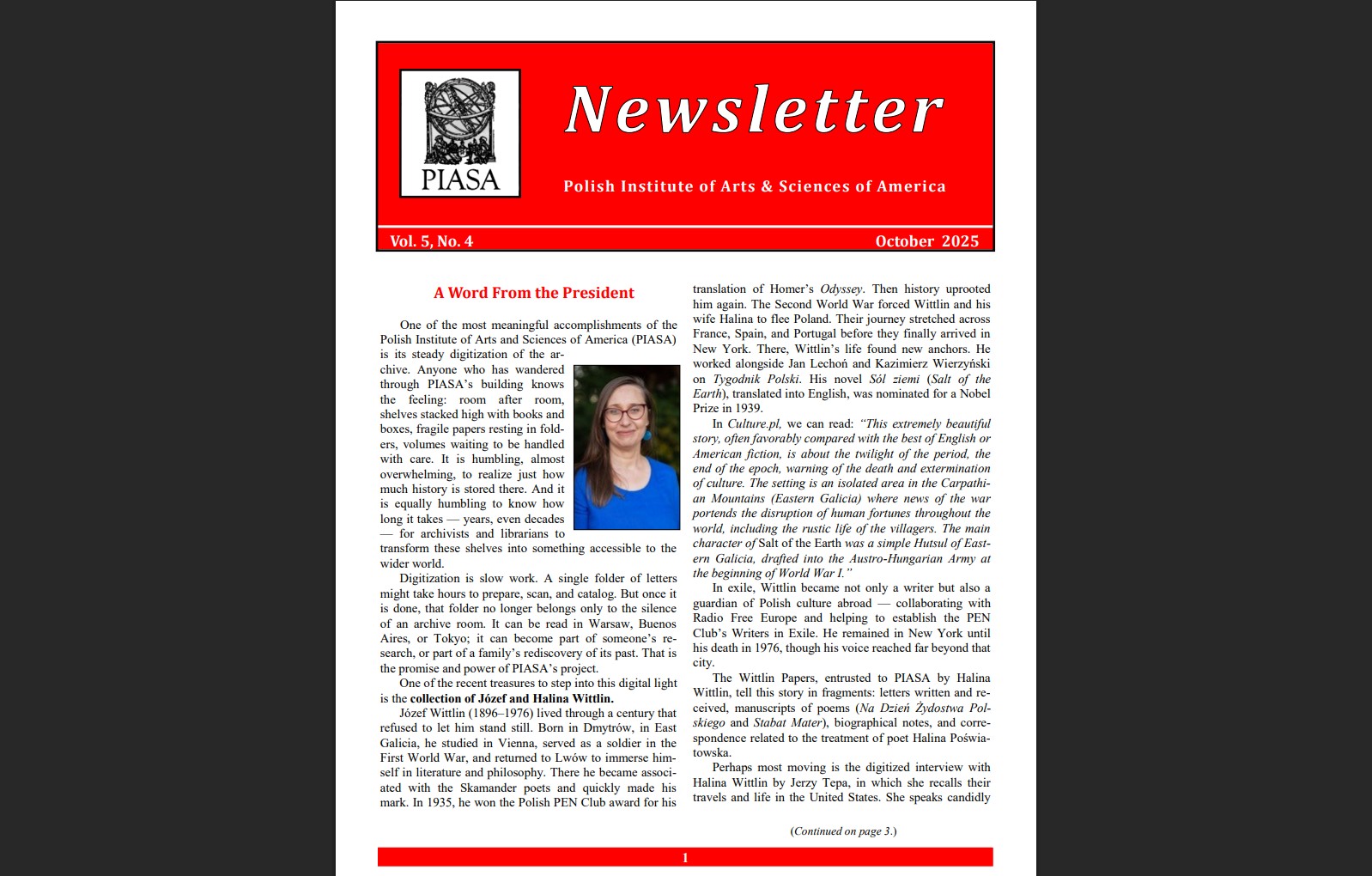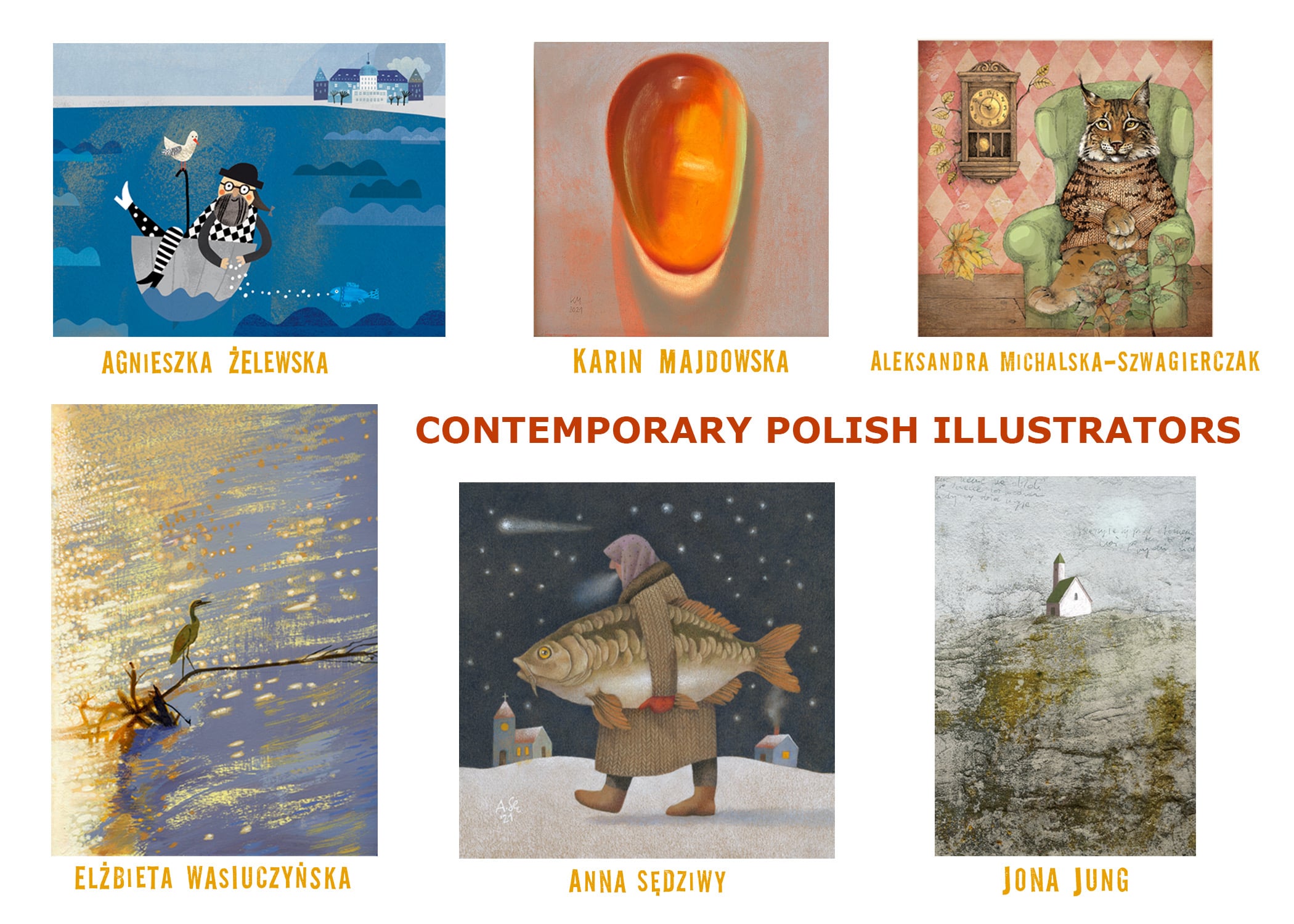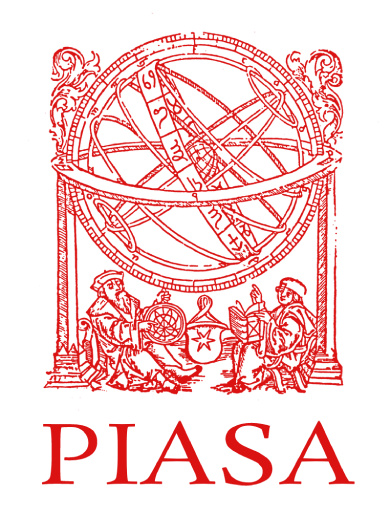Newsletter Vol. 4, No. 2 April 2024
Nearly six years ago, you entrusted me with the helm of this distinguished organization and my second term is rapidly approaching its end. As this will be my last column in this space, it comes with mixed emotions and many reflections on what has transpired since 2018.
Truth be told, those six years began with some trepidation. Yes, I had been a longstanding member of PIASA, had published in The Polish Review, had participated in several of its conferences, and served as a board member for three years. I also came with some administrative experience at my university, but quickly discovered that chairing a department and leading a national academic and cultural institute were two different matters. My first year was largely spent learning on the job under the guidance of interim president Professor Paul Knoll, who had also served for many years as PIASA’s vice president, and Executive Director Bozena Leven.
Things started on a promising note, and our 2019 World Congress in Gdańsk proved an unmitigated success, leading to new applications for membership after years of stagnation. That early momentum was then challenged by the COVID pandemic, the cancellation of conferences in Chicago in 2020 and Białystok in 2021, and the suspension of on-site events at our New York office. We had to find new means to stay connected to our membership and for our members to remain connected with each other. One was this Newsletter, the brainchild of Prof. James Pula. The other was a series of webinars, organized with the help of Prof. Anna Müller, PIASA’s incoming president.
We also made good use of our assets to emerge from the pandemic a stronger and more diverse organization. The Polish Review, edited early on by Prof. Neal Pease and then by Prof. Halina Filipowicz, has been transformed into the leading English-language multidisciplinary Polish studies journal with a genuinely global reach and a destination for cutting-edge scholarship. Our awards, which back in 2018 were irregularly given, are now well funded, increasingly competitive, and have increased from the original five to nine. Consequently, the increase in membership we experienced before the pandemic has accelerated over the last three years.
Finally, we have renewed our annual meetings, first in Białystok in 2022, just months after Russia’s invasion of Ukraine, and in New Britain in 2023. In both instances, as well as for the forthcoming World Congress in Warsaw, the amazing organizational talents of Patrice Dabrowski have proved invaluable. Every indication is that the Warsaw Congress will rival that of Gdańsk, both in terms of numbers and in the quality of speakers and panels.
In July, you will “Meet the New President” in this space, and I trust that you will support Anna Müller in her challenging new role. PIASA’s future is a bright one, and while I will be stepping aside as president, I hope to remain on the Board of Directors to assist in the transition, just as I was assisted back in 2018. I leave you with just two words of appreciation: “Thank you!”
― Robert Blobaum, PIASA President
Other News
2025 PIASA Award Recipients
•
February 11, 2026
Newsletter Vol. 6, No. 1 January 2026
•
December 30, 2025
CONTEMPORARY POLISH ILUSTATORS – Art Exhibition
•
November 12, 2025
Newsletter Vol. 5, No. 4 October 2025
•
September 26, 2025
Get Connected




